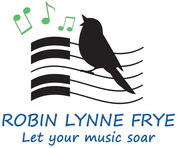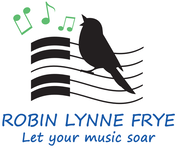Teaching MethodsBOOK YOUR LESSONS TODAY! 910-315-6049 / [email protected] |
My primary goal as a teacher is not only to teach the content of my field, but even more, to use that field as a vehicle for guiding students in learning how to live deliberately and purposefully. Music education, by virtue of the creativity and the types of intelligence it develops and the individual and interpersonal situations in which it places students, is one of the most comprehensive means available to help them to learn about themselves and their place in the world. My role is to facilitate my students’ success in these areas through the medium of music.
Music education connects a student with the history and culture of the world. It teaches a student to recognize beauty, in music and in other areas. It teaches a student how to learn, how to work with self-discipline to achieve his goals, about the satisfaction to be found in that achievement, and about the consequences of his actions. It teaches a student how to express himself confidently and authentically through the medium of music, and how to work with others to do so in a cooperative effort. Through that cooperation, it fosters leadership, connects him to his larger community and provides a source of ongoing enrichment for that community.
For all of these reasons, it is vitally important that quality music education be available to everyone. The above philosophy informs my voice and piano teaching in a general way.
Music education connects a student with the history and culture of the world. It teaches a student to recognize beauty, in music and in other areas. It teaches a student how to learn, how to work with self-discipline to achieve his goals, about the satisfaction to be found in that achievement, and about the consequences of his actions. It teaches a student how to express himself confidently and authentically through the medium of music, and how to work with others to do so in a cooperative effort. Through that cooperation, it fosters leadership, connects him to his larger community and provides a source of ongoing enrichment for that community.
For all of these reasons, it is vitally important that quality music education be available to everyone. The above philosophy informs my voice and piano teaching in a general way.
Voice Teaching Philosophy
4 essentials to fine voice teaching
If I do my job as a teacher well, then my students learn how to solve their own vocal problems. They are urged to ask questions during lessons to ensure that they always know why they are being asked to do what they are being asked to do. It is important to me that my students develop an understanding of the sensations they should feel when a sound is formed correctly, and also an understanding of what is amiss when a sound is incorrectly produced. We work together so that it is clear to them both why a sound works when it does and what alterations should be made when it does not. As singers, we do not hear a true representation of our own sound as we sing, and this is where the trusted ears of the voice teacher can be our guide, even for advanced professional singers. But students should be progressively more able to troubleshoot their own vocal problems when they are not in the studio and run into difficulties.
I accept voice students from age 15 and up, earlier by audition, for hourly lessons once a week. I teach a classical vocal technique that can be adapted to sing other styles of music such as musical theater in a healthy way that will promote vocal longevity. Sight singing and basic music theory may be included in lessons if desired. Appropriate style and interpretative skills are taught. Foreign language diction coaching is included for repertoire requiring it. Developmentally- and age-appropriate repertoire suggestions will be made.
4 essentials to fine voice teaching
- a thorough understanding of the function of the various components of the voice, grounded in a study of its anatomy and physiology;
- a keen diagnostic ear and eye to assess what adjustments to the vocal mechanism need to be made by the singer to achieve an optimal sound;
- an ability to impart that information clearly in several different ways in order to match the abilities and learning styles of different students; and
- a commitment to creating a positive, supportive and encouraging learning environment where students feel both safe in attempting and motivated in continuing new vocal behaviors which often take considerable time to work consistently.
If I do my job as a teacher well, then my students learn how to solve their own vocal problems. They are urged to ask questions during lessons to ensure that they always know why they are being asked to do what they are being asked to do. It is important to me that my students develop an understanding of the sensations they should feel when a sound is formed correctly, and also an understanding of what is amiss when a sound is incorrectly produced. We work together so that it is clear to them both why a sound works when it does and what alterations should be made when it does not. As singers, we do not hear a true representation of our own sound as we sing, and this is where the trusted ears of the voice teacher can be our guide, even for advanced professional singers. But students should be progressively more able to troubleshoot their own vocal problems when they are not in the studio and run into difficulties.
I accept voice students from age 15 and up, earlier by audition, for hourly lessons once a week. I teach a classical vocal technique that can be adapted to sing other styles of music such as musical theater in a healthy way that will promote vocal longevity. Sight singing and basic music theory may be included in lessons if desired. Appropriate style and interpretative skills are taught. Foreign language diction coaching is included for repertoire requiring it. Developmentally- and age-appropriate repertoire suggestions will be made.
Piano Teaching Philosophy
5 essentials to fine piano teaching
My students learn on a beautiful antique Steinway grand piano.
5 essentials to fine piano teaching
- effective methods of learning to sight read or improving existing sight reading skills;
- instruction on proper technique;
- exposure to appealing, developmentally appropriate repertoire;
- guidance in stylistically correct interpretation; and
- basic music theory -- this helps my students to understand and recognize the structure and patterns of the music they play, and it also allows them to learn to improvise if they wish.
My students learn on a beautiful antique Steinway grand piano.

